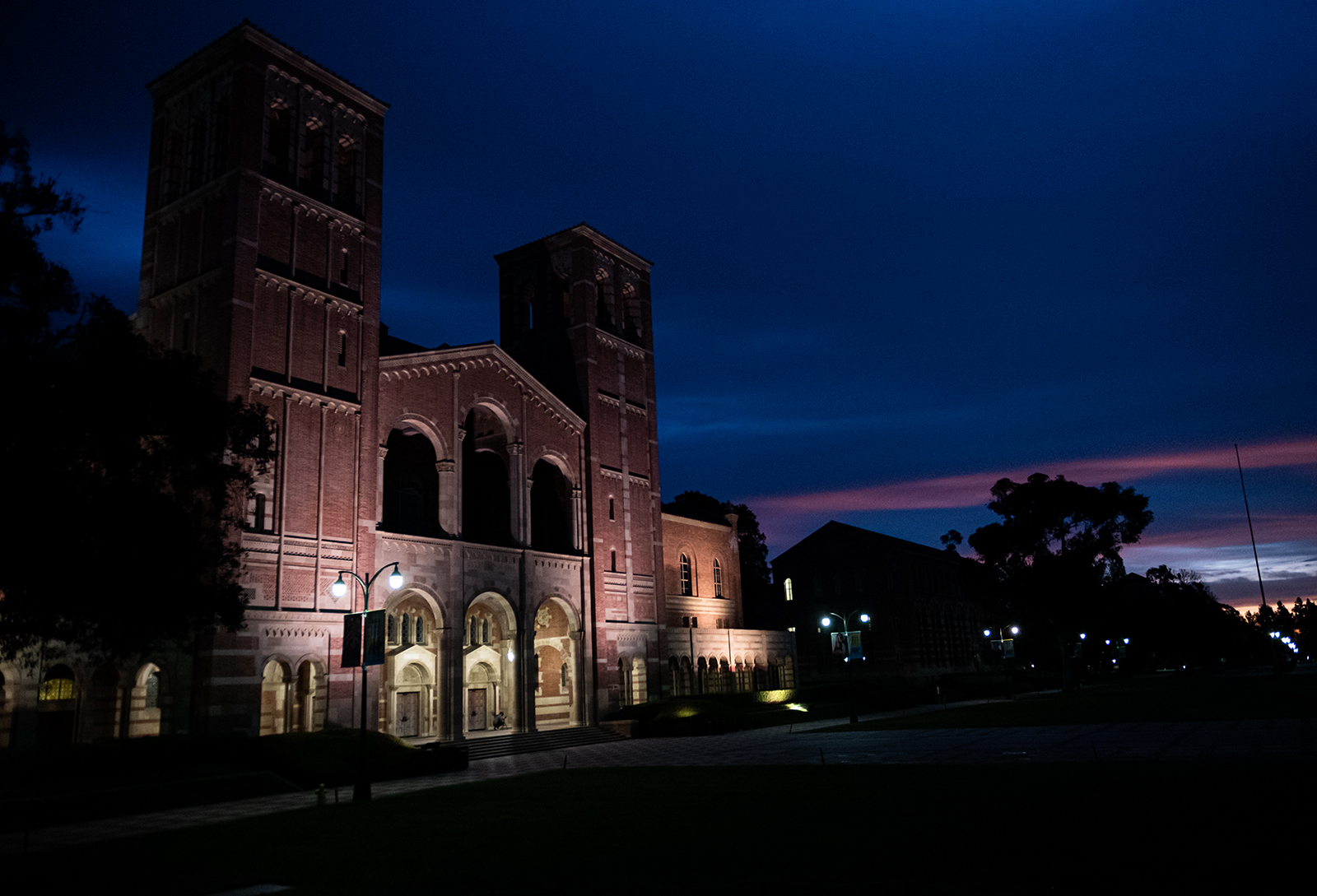Survey finds 36% of college admissions officers look at students’ social media

According to a Kaplan Test Prep survey released in January, 36% of college admissions officers said they viewed applicants’ social media profiles, an 11% increase from the year before. (Liz Ketcham/Photo editor)
By Kalysa To
Feb. 2, 2020 11:32 p.m.
More college admissions officers are viewing applicants’ social media profiles this year than last year, according to a Kaplan Test Prep survey.
The survey, which was released Jan. 13, found that 36% of admissions officers view applicants’ social media profiles, an 11% jump from the 25% reported last year.
The statistic reached its peak in 2015 with 40% of officers reporting they viewed social media profiles, but the percentage declined in the following three years.
UCLA admissions does not look at applicants’ social media, said UCLA spokesperson Ricardo Vazquez.
One factor for the increase this year may be recent shifts in attitudes of college admissions officers, said Sam Pritchard, the director of college prep programs at Kaplan.
“I think many universities believe that they’re getting a more unfiltered view of the students when viewing that student’s Facebook profile or Instagram versus some … application materials that have been prepared specifically for that university,” Pritchard said.
However, the survey found about 19% of college admissions officers regularly check social media profiles.
“So chances are high that if you’re posting specifically in hopes that something will be found, there’s a good chance that may not happen,” Pritchard said.
Mitchell Chang, an education and Asian American studies professor, said he believes viewing applicants’ social media allows colleges to ensure the person they choose to admit is consistent with the application they receive.
Chang added he believes information posted online publicly is fair game for college admissions officers to view.
“What’s public is public,” Chang said. “I think that’s fair because they’re gaining some insight into who you really are, and I think that matters for colleges because of their concerns about the learning environment and then protecting themselves legally.”
According to the survey, 59% of college admissions officers think looking at applicants’ social media is fair game, while 41% consider it an invasion of privacy.
Tyrone Howard, a professor of education at UCLA, said he does not think college admissions officers should view applicants’ social media as applicants’ private lives are not strong indicators of their aptitude as students.
“I think that students’ social media profiles … are not really relevant … to their academic pursuits,” Howard said. “I think we have to be very clear where that line is drawn between a student’s personal life and the public realities of your academic profile, which is what they’re supposed to be judged on.”
Although colleges might want to admit students who will keep their campuses inclusive and respectful, viewing applicants’ social media might actually harm diversity, he added.
“So that’s where it gets kind of tricky, because diversity is not just diversity of social identity,” Howard said. “It’s also diversity of thought, diversity of opinion and diversity of beliefs.”
However, from a legal perspective, what people post on social media can be viewed by college admissions officers, said Alex Alben, a professor of law who studies privacy.
“As a privacy professor, I would say things that people post on social media accounts, they should not have an expectation of privacy that people who are strangers won’t be looking at them, and that includes the college admissions officer,” Alben said. “That’s the legal standard.”
Alben added he thinks colleges need to have a rationale when looking at social media profiles and should acknowledge that applicants’ social media posts may not reflect their current opinions.
“The colleges, I think, really need to balance the pros and cons of looking at what people post and taking into account that people change and mature over time,” Alben said.
Leah Lievrouw, a professor of information studies, said different people have different evaluations of the importance of privacy.
“(It depends on) the degree to which people take privacy concerns seriously,” Lievrouw said. “I think there’s still a lot of people who might talk about privacy or privacy invasion or feeling like they’re watched and so forth. But I think for many people – and I think unhappily for a lot of young people – they don’t really take that very seriously.”
However, Melissa Herrera, a first-year biochemistry student, said she thinks social media should be kept private and separate from academics.
“I think a person is very different in their social and academic aspects,” Herrera said. “If they’re doing good in school and are able to balance that with academics or any other things like extracurriculars, I think that should be enough to show that this person can balance well their activities.”

